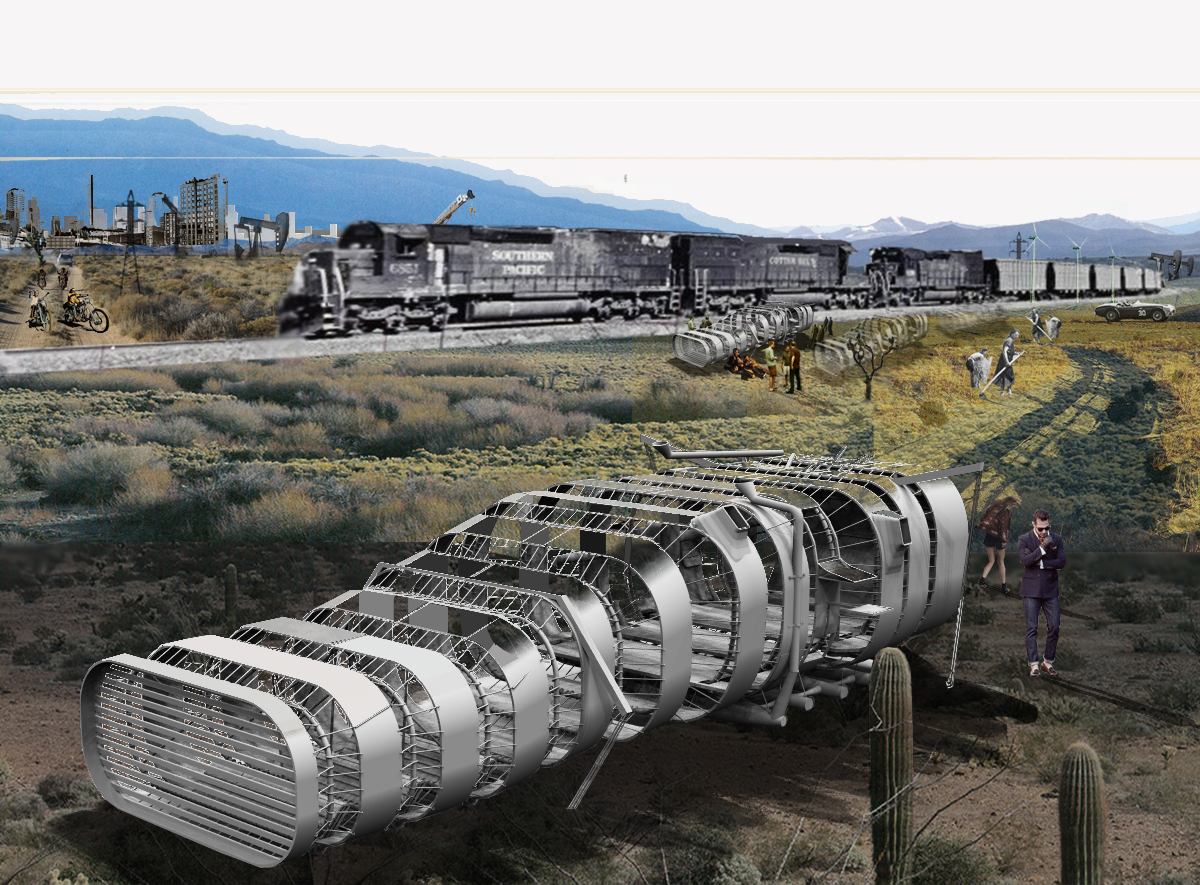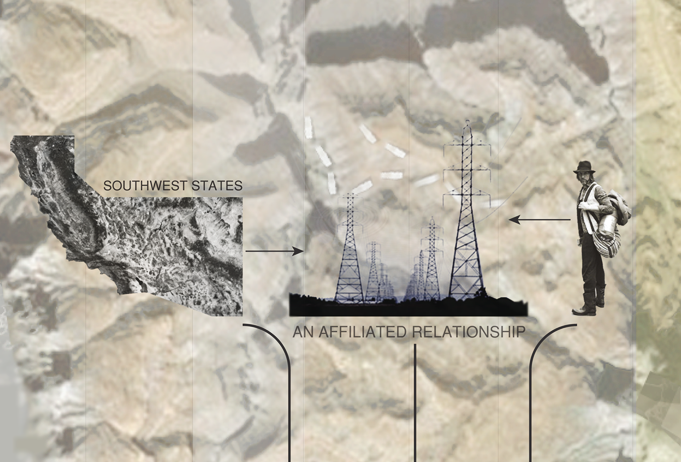RECIPROCAL EXCHANGE
RE-BIRTH OF HYBRID NOMADISM
THE SOUTHWEST










CONCEPT
Functioning in the diverse localities of the Southwest between Los Angeles and the Grand Canyon, the 'Locomobile' offers a new cultural alternative to transportation and fulfills a desire for economic sustainability. It serves a nomadic commodity while simultaneously undermining the existing methods of urban life.
The invention is a factory designed and engineered mechanism, funded by the Southwestern states and deployed across the desert to be adopted by the existing culture of American nomads. The idea introduces a technologically complex and humanistic rebirth of American nomadic culture which is sporadic as well as latent, harkening back to American Indians, the Gold Rush, 1960's counter culture, etc., all of which is always linked to overarching social change.
The machines are designed to harvest high solar power enabling desert nomads to obtain needed energy as well as provide a surplus, diminishing the ability for solar facility developments to threaten ecologically important public lands. With energy sustenance, it allows an aspect of the machine to capture, filter and reuse rainwater for drinking and irrigation. This introduces an affiliated relationship where energy harvesting, land stewardship, private enterprise and leisure convene become a reciprocal exchange, promoting both the regional issues of the state and nomadic owner's private needs.
Finally, in the larger context of architecture and urbanism, the rebirth of such hybrid nomadism, where the owner becomes the author of amalgam of systems of symbiosis, is an innovation to the existing phenomenon of static urbanism as well as a futuristic reinterpretation of the escapist hippie desire of the 60's.
Project Category: Academic / Thesis
Institution: Woodbury University
Year Designed: Spring 2013
Location: The Southwest
Project Designer: Andranik Ognayan
Professor: John Brockway, James Bucknam
© 2025 Ognayan Design
